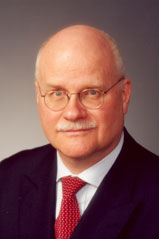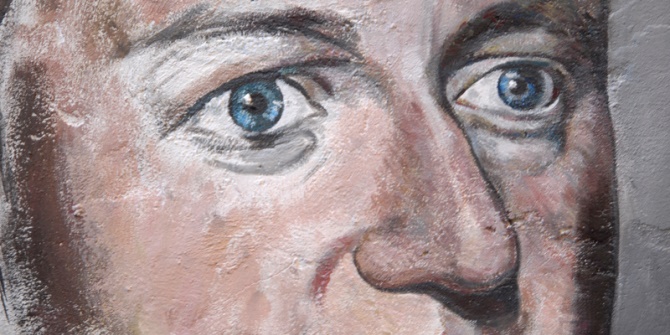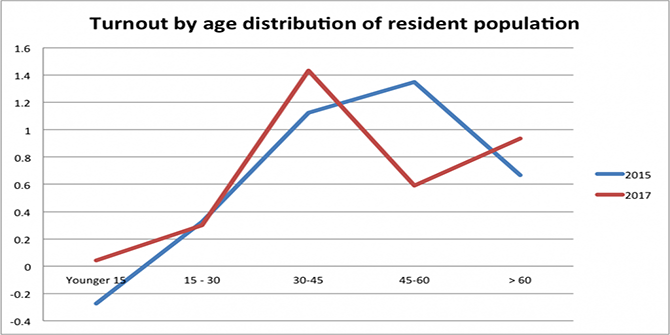To mark the end of 2014 we’ve compiled some of our best articles. Stay tuned, we’ll have more great content in 2015!
10. Economics is itself one of the biggest problems we face today
 The logic of the market has become embedded in our daily, personal interactions, argues Philip Roscoe. The complexities of arriving at a decision in the modern world force us to share the burden of calculation with devices in which certain economic assumptions are lodged. Unless we evaluate the problem with economics, we run the risk of losing our humanity.
The logic of the market has become embedded in our daily, personal interactions, argues Philip Roscoe. The complexities of arriving at a decision in the modern world force us to share the burden of calculation with devices in which certain economic assumptions are lodged. Unless we evaluate the problem with economics, we run the risk of losing our humanity.
9. Policymaking requires sensitivity to emotion, publicity and performance as much as it does to knowledge and principles
 Psychologists have shown that ordinary citizens judge policies based upon the meaning they attach to it, rather than undertaking a rigorous ‘rational’ analysis. We often evaluate policies on an unconscious, intuitive level, and emotion and affect play a crucial part. This understanding of behaviour explains the diversity and emotivity of judgments about public policy issues, and argues against the reduction of policy judgments to scientific evidence or to material self-interest, writes Richard D. French.
Psychologists have shown that ordinary citizens judge policies based upon the meaning they attach to it, rather than undertaking a rigorous ‘rational’ analysis. We often evaluate policies on an unconscious, intuitive level, and emotion and affect play a crucial part. This understanding of behaviour explains the diversity and emotivity of judgments about public policy issues, and argues against the reduction of policy judgments to scientific evidence or to material self-interest, writes Richard D. French.
8. ‘A policy that kills’: The bedroom tax is an affront to basic rights
 Billed as a way to reduce under-occupation and encourage people back into work, the ‘bedroom tax’ has not met the goals set out by policymakers, writes Insa Koch. Instead it is creating hardship for many of the over 500,000 households affected by the tax, forcing many into a situation where they are forcibly evicted from their homes. Moreover, the vast majority of households which are under-occupying their dwellings are not within the social housing sector: they are privately owned properties.
Billed as a way to reduce under-occupation and encourage people back into work, the ‘bedroom tax’ has not met the goals set out by policymakers, writes Insa Koch. Instead it is creating hardship for many of the over 500,000 households affected by the tax, forcing many into a situation where they are forcibly evicted from their homes. Moreover, the vast majority of households which are under-occupying their dwellings are not within the social housing sector: they are privately owned properties.
7. The ‘nightwatchman’ state is being rolled back: Do the powerful still need the police?
 Theresa May, the Home Secretary, has launched radical reforms of the police service, already the hardest hit of all public services. Why have the police plunged in political clout sufficiently to make the deep transformation in their resources and powers possible? The bottom line, writes Robert Reiner, is that the powerful are simply less dependent on public police protection, benefiting from bespoke services that are cheaper than extending universal guardianship to all citizens.
Theresa May, the Home Secretary, has launched radical reforms of the police service, already the hardest hit of all public services. Why have the police plunged in political clout sufficiently to make the deep transformation in their resources and powers possible? The bottom line, writes Robert Reiner, is that the powerful are simply less dependent on public police protection, benefiting from bespoke services that are cheaper than extending universal guardianship to all citizens.
6. Economics is becoming an elite subject for elite UK universities
UK universities have had to become much more responsive to changes in the pattern of demand and compete with one another for different revenue streams. James Johnston and Alan Reeves ask how this has played out in relation to the undergraduate economics degree, finding that new universities have retreated from offering economics programmes even as student numbers rose substantially. The authors argue that the role of research evaluation exercises cannot be ignored in this development and that there is a widening gulf between new and old universities. Moreover, the study of economics is being restricted along class lines, with students from disadvantaged backgrounds more likely to attend new universities and thus less likely to have access to economics programmes.
5. Political and constitutional turbulence in the UK looks set to continue to 2020
 Patrick Dunleavy writes that Scotland’s ‘No’ vote solved one acute existential threat to the UK, but only for now. He argues that the likely narrow results of the May 2015 general election plus David Cameron’s promise of another referendum on the UK leaving the European Union in 2017 promises massive constitutional turbulence between now and 2020. For instance, if the UK votes to leave the European Union in 2017, a near-immediate rerun of Scottish referendum could be on the cards, where voting to exit the UK would let Scots stay European citizens.
Patrick Dunleavy writes that Scotland’s ‘No’ vote solved one acute existential threat to the UK, but only for now. He argues that the likely narrow results of the May 2015 general election plus David Cameron’s promise of another referendum on the UK leaving the European Union in 2017 promises massive constitutional turbulence between now and 2020. For instance, if the UK votes to leave the European Union in 2017, a near-immediate rerun of Scottish referendum could be on the cards, where voting to exit the UK would let Scots stay European citizens.
4. The idea that there is a welfare-dependent underclass is wrong
 A new book by John Hills explores key issues in the current debate about ‘welfare’ and the welfare state. The debate contrasts a stagnant group of people benefiting from it all with the rest who pay in and get nothing back – ‘skivers’ against ‘strivers’. John explains how, because people’s lives and circumstances change, most of us get back something at least close to what we pay in over our lives towards the welfare state.
A new book by John Hills explores key issues in the current debate about ‘welfare’ and the welfare state. The debate contrasts a stagnant group of people benefiting from it all with the rest who pay in and get nothing back – ‘skivers’ against ‘strivers’. John explains how, because people’s lives and circumstances change, most of us get back something at least close to what we pay in over our lives towards the welfare state.
3. Contrary to popular and academic belief, Adam Smith did not accept inequality as a necessary trade-off for a more prosperous economy
 The assumption that Adam Smith accepted inequality as the necessary trade-off for a more prosperous economy is wrong, writes Deborah Boucoyannis. In reality, Smith’s system precluded steep inequalities not out of a normative concern with equality but by virtue of the design that aimed to maximise the wealth of nations. Much like many progressive critics of current inequality, Smith targets rentier practices by the rich and powerful as distorting economic outcomes.
The assumption that Adam Smith accepted inequality as the necessary trade-off for a more prosperous economy is wrong, writes Deborah Boucoyannis. In reality, Smith’s system precluded steep inequalities not out of a normative concern with equality but by virtue of the design that aimed to maximise the wealth of nations. Much like many progressive critics of current inequality, Smith targets rentier practices by the rich and powerful as distorting economic outcomes.
2. A global progressive tax on individual net worth would offer the best solution to the world’s spiralling levels of inequality
 The issue of inequality is one of the most salient in global and European politics. Thomas Piketty writes on the economic forces which have impacted upon inequality since the end of the First World War. He argues that with disparities in income and wealth rising substantially over recent decades, a global progressive tax on individual net worth would offer the best option for keeping inequality under control. He writes that although implementing such a tax would be a major challenge politically, it would be feasible if the EU and the United States, each accounting for around a quarter of world output, put their combined weight behind it.
The issue of inequality is one of the most salient in global and European politics. Thomas Piketty writes on the economic forces which have impacted upon inequality since the end of the First World War. He argues that with disparities in income and wealth rising substantially over recent decades, a global progressive tax on individual net worth would offer the best option for keeping inequality under control. He writes that although implementing such a tax would be a major challenge politically, it would be feasible if the EU and the United States, each accounting for around a quarter of world output, put their combined weight behind it.
1. How ‘competitiveness’ became one of the great unquestioned virtues of contemporary culture
 Widening economic inequality is the academic topic du jour, but the trend of growing wealth and income disparity has been underway for several decades. How did mounting inequality succeed in proving culturally and politically attractive for as long as it did? Will Davies writes that rather than speak in terms of generating more inequality, policy-makers have always favoured another term, which effectively comes to the same thing: competitiveness. In this article, and in a new book, he attempts to understand the ways in which political authority has been reconfigured in terms of the promotion of competitiveness.
Widening economic inequality is the academic topic du jour, but the trend of growing wealth and income disparity has been underway for several decades. How did mounting inequality succeed in proving culturally and politically attractive for as long as it did? Will Davies writes that rather than speak in terms of generating more inequality, policy-makers have always favoured another term, which effectively comes to the same thing: competitiveness. In this article, and in a new book, he attempts to understand the ways in which political authority has been reconfigured in terms of the promotion of competitiveness.







